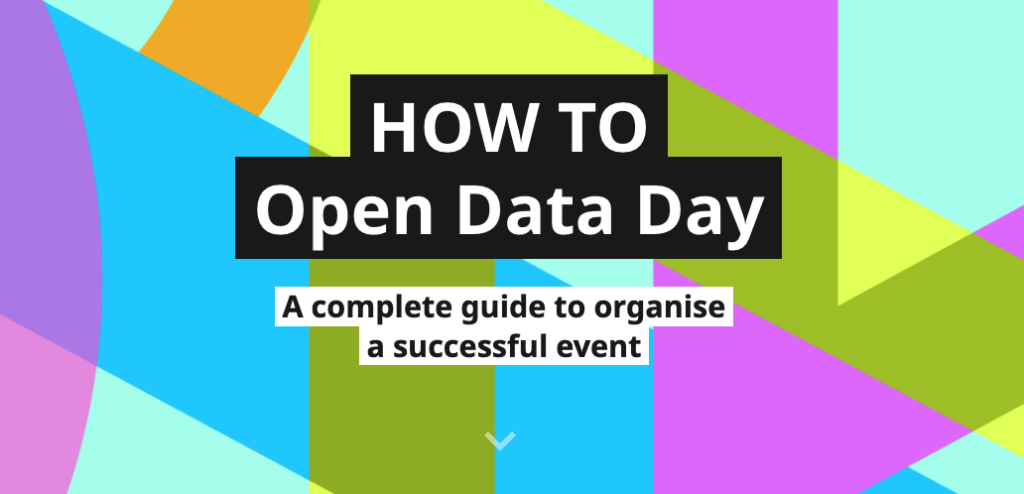
Open Data Day (ODD) is the annual celebration of open data all over the world, where groups from around the world create local events to promote open data or use open data in their communities. 2023 Open Data Day(s) will take place from 4th to 10th March.
ODD usually sees thousands of people getting together at hundreds of events organised by communities. The Open Knowledge Foundation (OKFN) has been helping to organise and maintain it to foster an open data community.
Organising the event itself is a not so easy task and achieving a greater impact from the organised event is more difficult. So, to ease the process and guide the community to organise a successful ODD event, we have compiled the following resources that can be helpful for everyone.
This blog will highlight how you can host/organise/run a successful ODD event in your country by making the best utilisation of the available resources.
↩ Before the event
- Figure out the basics and register your event: You can start by finalising the event name, event date, location, event modularity, potential participants, and more so that it will be easier for you to plan the event and start inviting other people to join the planning. Once you finalise the details, please register your event at the ODD website for better reach and invite other people to join the event.
- Invite/find participants: Open Data Day(s) is a great way to get connected with other people working in diverse fields. Participation is a core value of ODD, everyone is free to voice their opinions in a constructive manner. Please invite participants from the local community to join the event by promoting the event on social media and local channels. For the invitation and promotion, you can use the ODD 2023 Press Kit developed by OKFN.
Also, if you are looking for a specialist or domain expert to join the event, please feel free to use OKFN Global Directory to find and get connected with people.
- Find required datasets in advance: If you are organising hackathons, datathon or workshops that required datasets, It will be a good idea to map and find the potential sources of datasets in advance so that participants don’t have the spend more time searching for it during the event day. The resource page on the ODD website contains links to datasets from different categories.
If your event fits into this year’s thematic focus “Open Data to AI”, you can find the datasets from Kaggle. Lacuna Fund has also published Agriculture and Language datasets. This article by Towards AI contains details of the best public datasets for Machine Learning and Data Science.
- Sort out logistics: Finalise the event venue with a good stable internet connection and arrange food and coffee for participants joining the event. For venue, always try to partner with local organisations and institutions, who can sponsor the well-equipped event hall for free. You can also apply for a small grant (the deadline is February 26!) if you are looking for financial support to cover the logistic expenses of your event. This year OKFN will support up to 15 events with a grant of USD 500 each.
⇣ On the event day
- Gather and start on time: Share the event schedule in advance with potential participants so that everyone can gather at the venue on time. Stick with the schedule and start the event on time. Don’t prepare a tight schedule with a lot of activities, try to be flexible and adapt accordingly.
- Capture the highlights: Don’t forget to take photos, videos and capture the important discussions happening so that they can be later shared with broader audiences. Please tag @OKFN, if you are tweeting about the event so that we are able to like/share, and feel free to include official ODD hashtags: #OpenDataDay, #ODD2023, #OpenDataToAI, #BetterTogetherThanAlone. The highlights can also be used in the event documentation.
- Allocate time for discussion and feedback: While developing the event schedule, please allocate extra time at the end of the event for the discussion and collect feedback from the participants on how to further stay connected and continue the conversation.
↪ After the event
- Publish the highlight: Compiling the highlights captured during the event, write a blog post by including the details of the activities that happened, learning, and outputs. If you want to publish the blog post at OKFN blog for wider reach, learn more details here.
- Open source the output: Make the output open for everyone to reuse. You can submit your project/output of ODD to be listed in OKFN Project Repository.
For more information, you can reach out to the Open Knowledge Foundation team by emailing opendataday@okfn.org. You can also join the Open Data Day Google Group to ask for advice or share tips and get connected with others.








